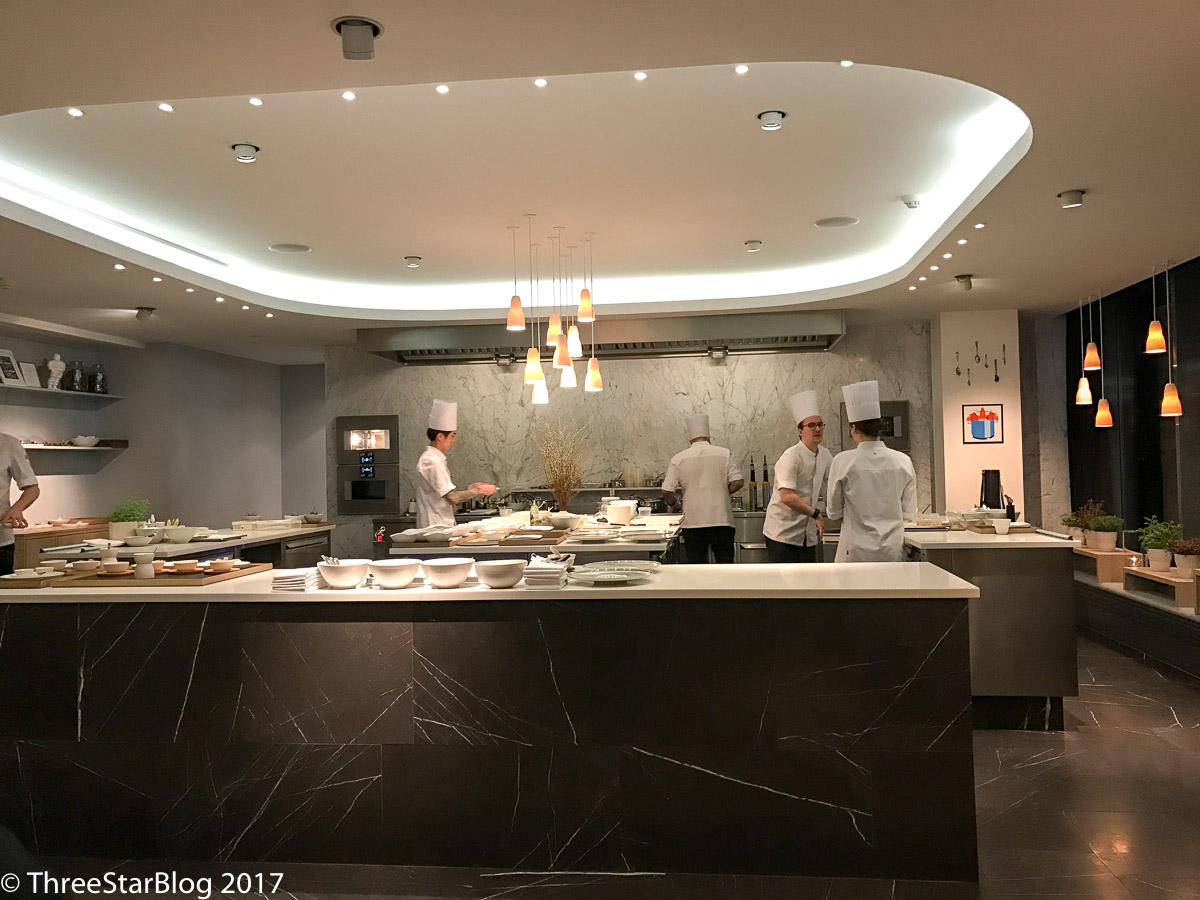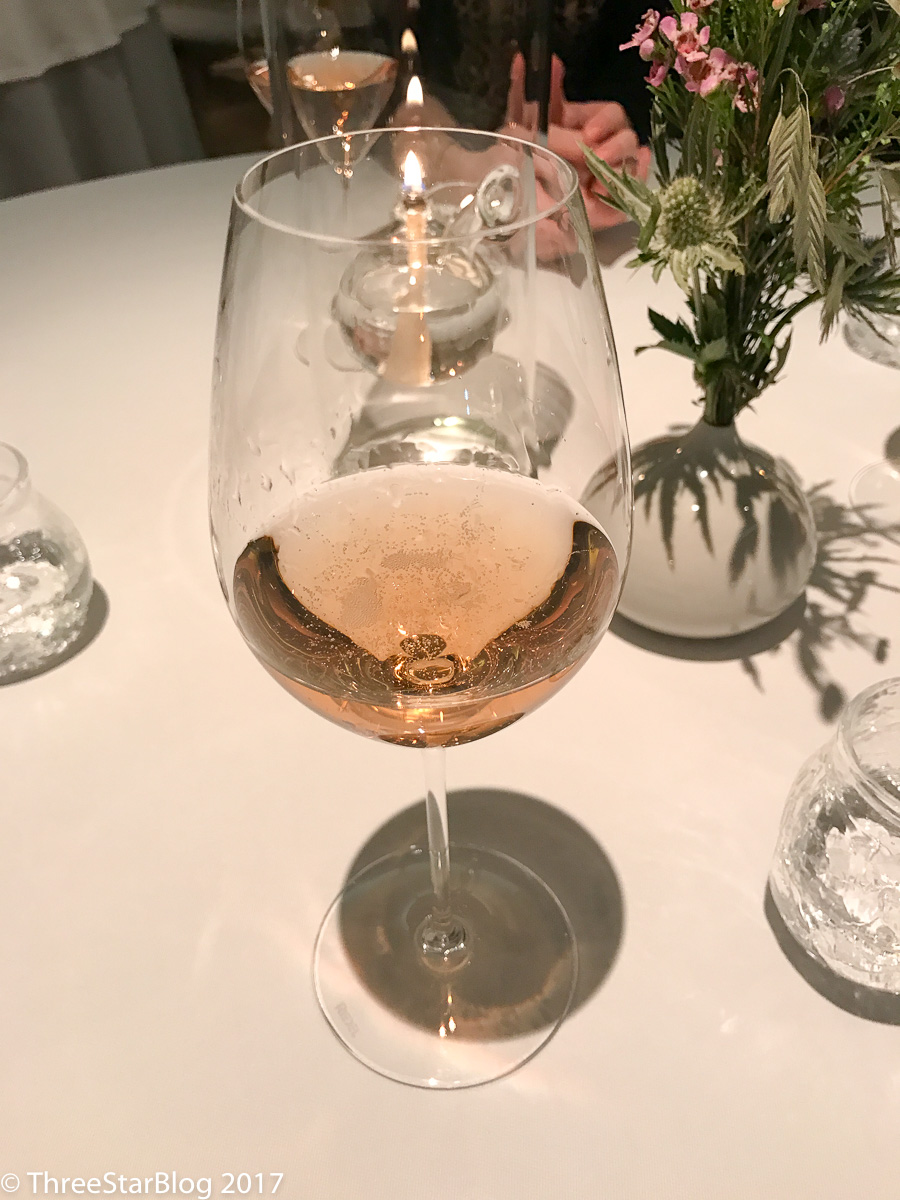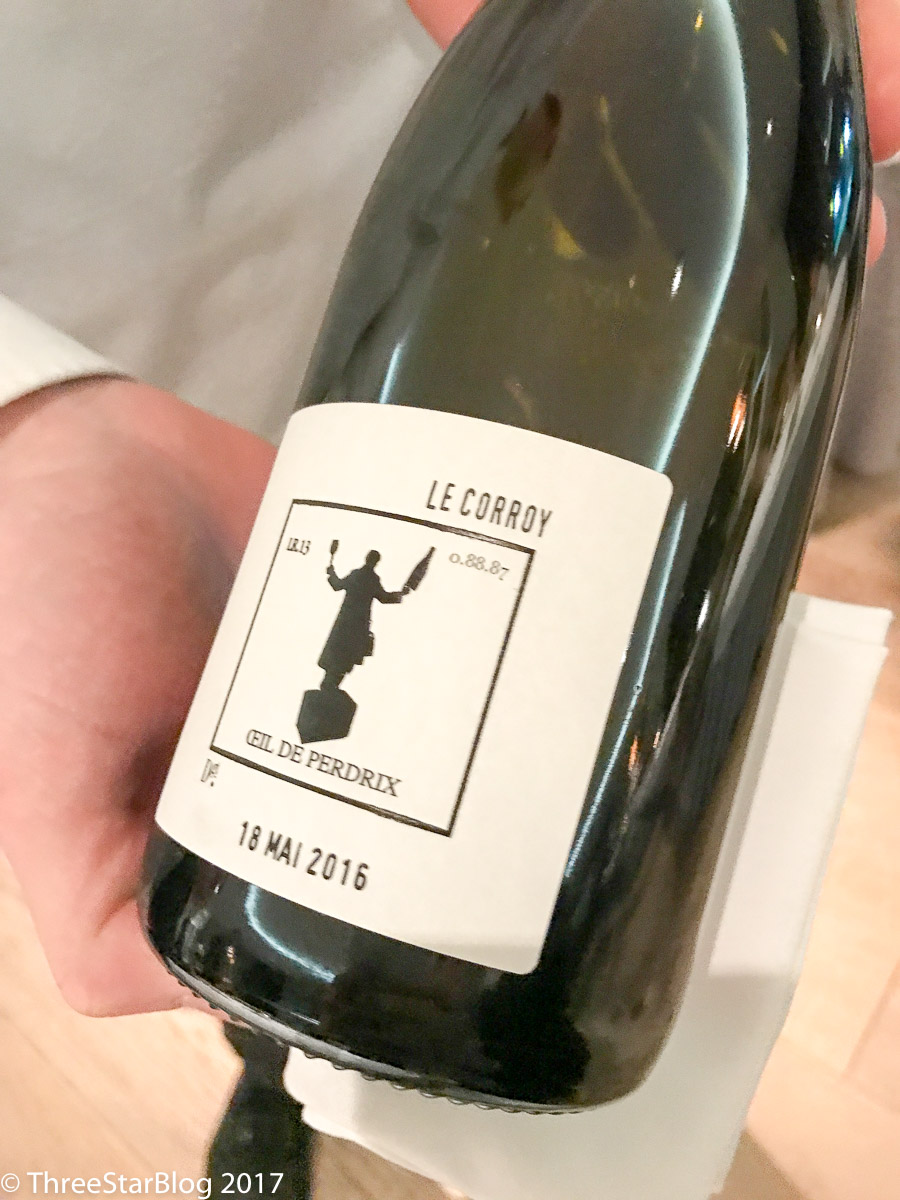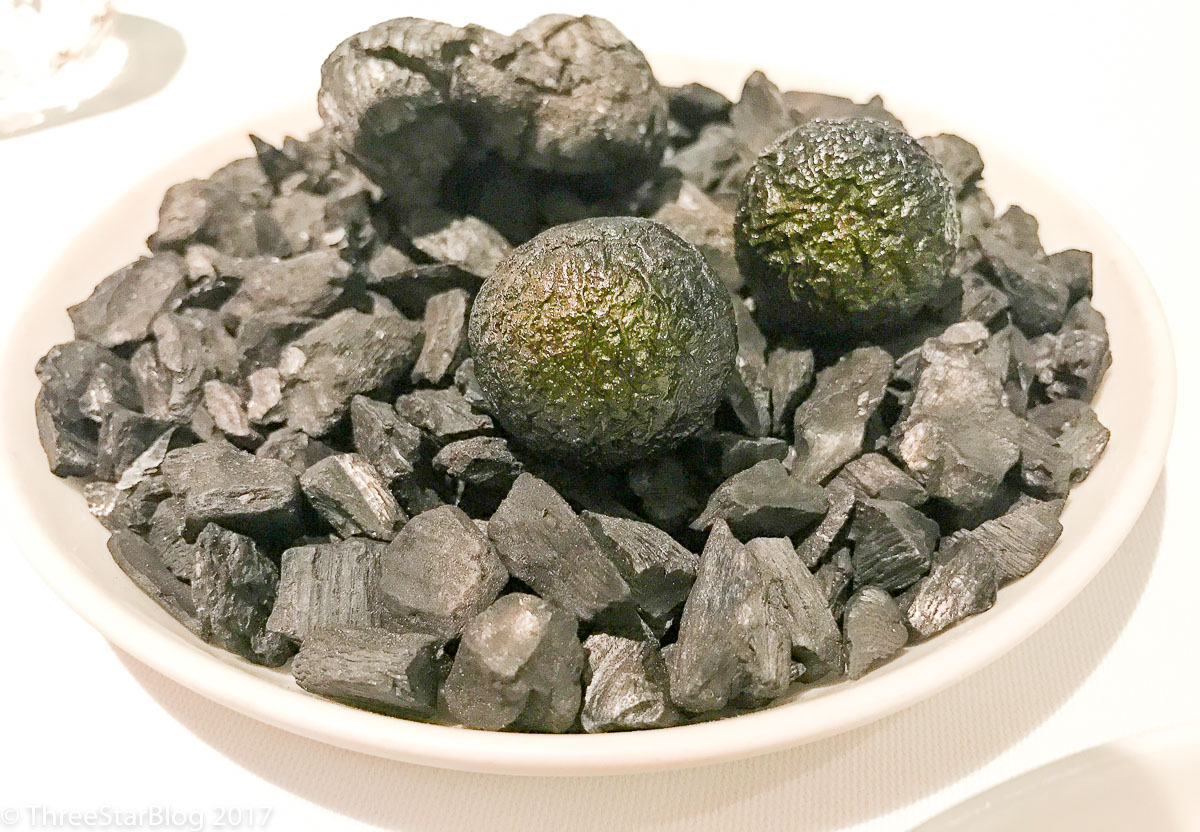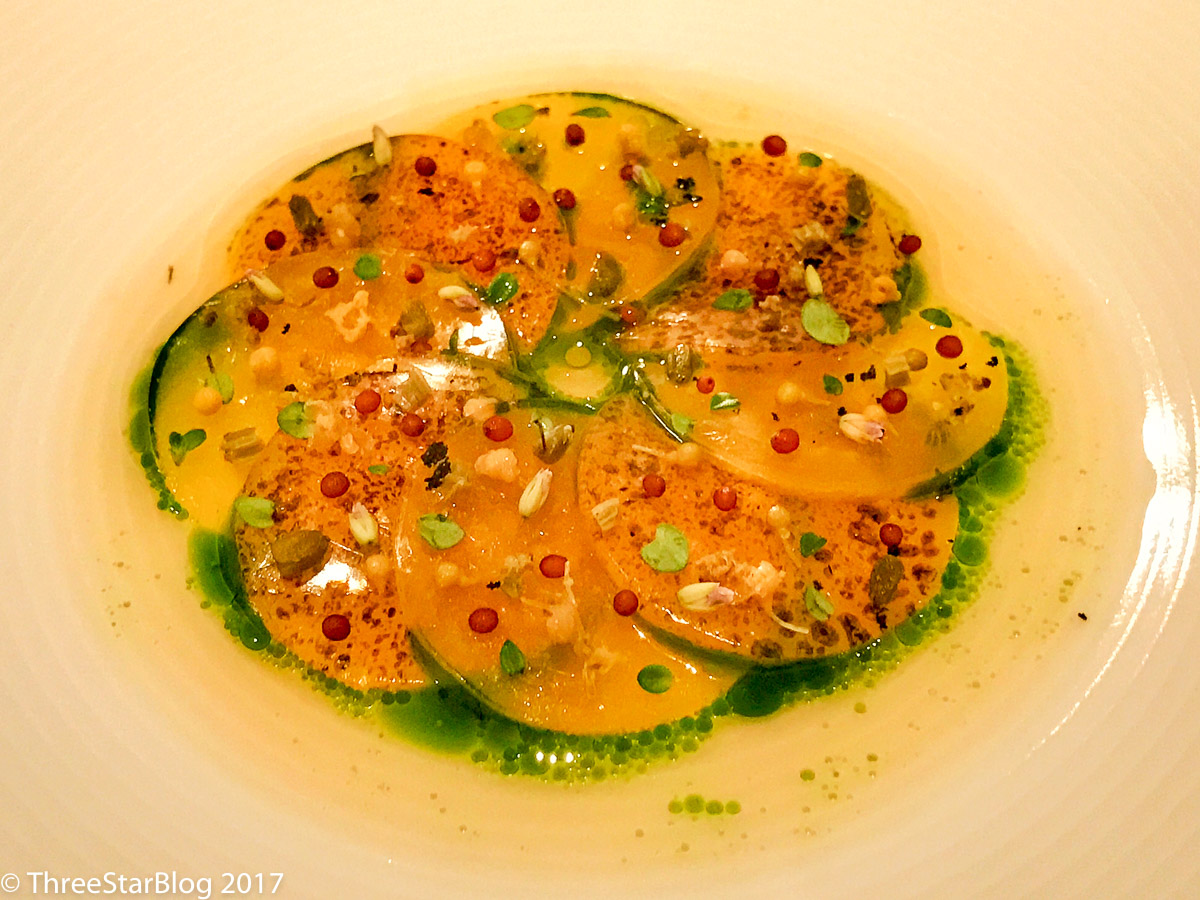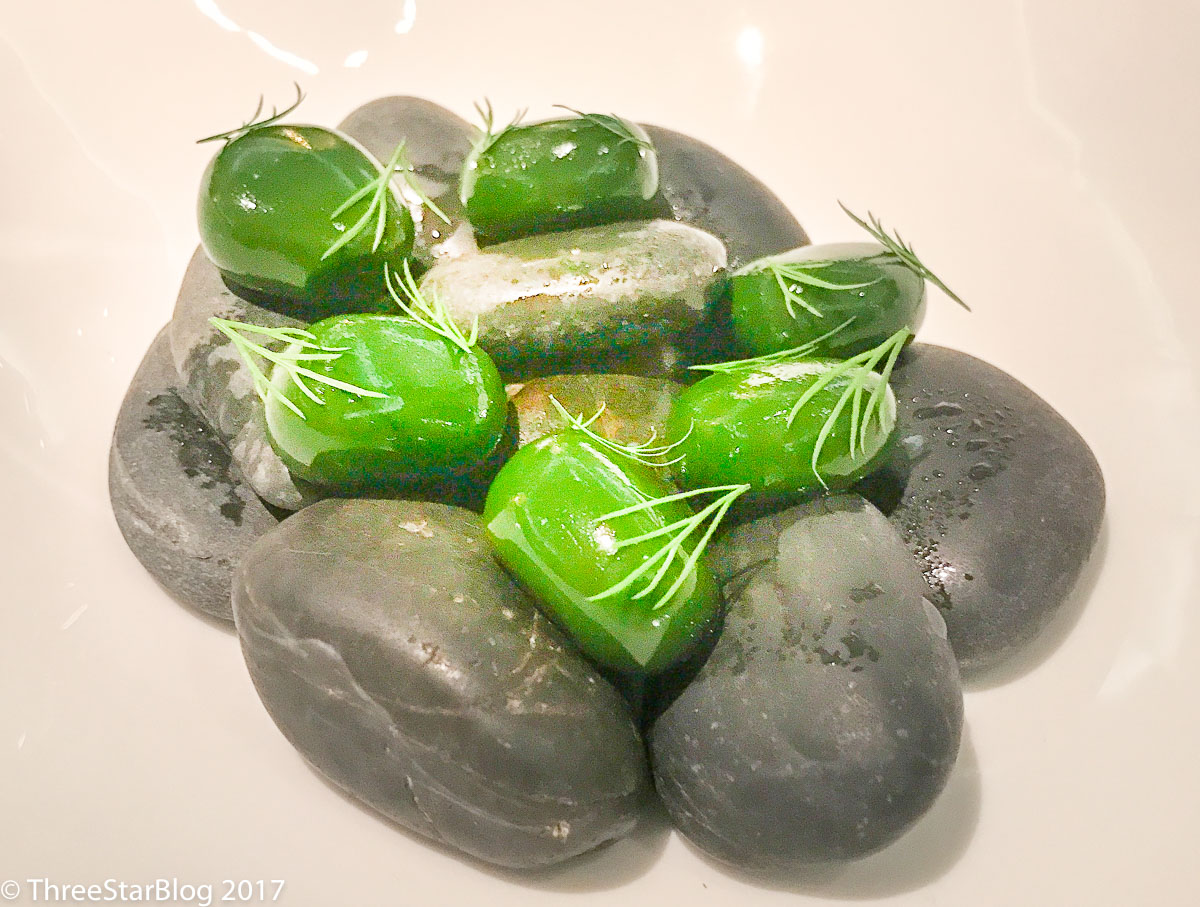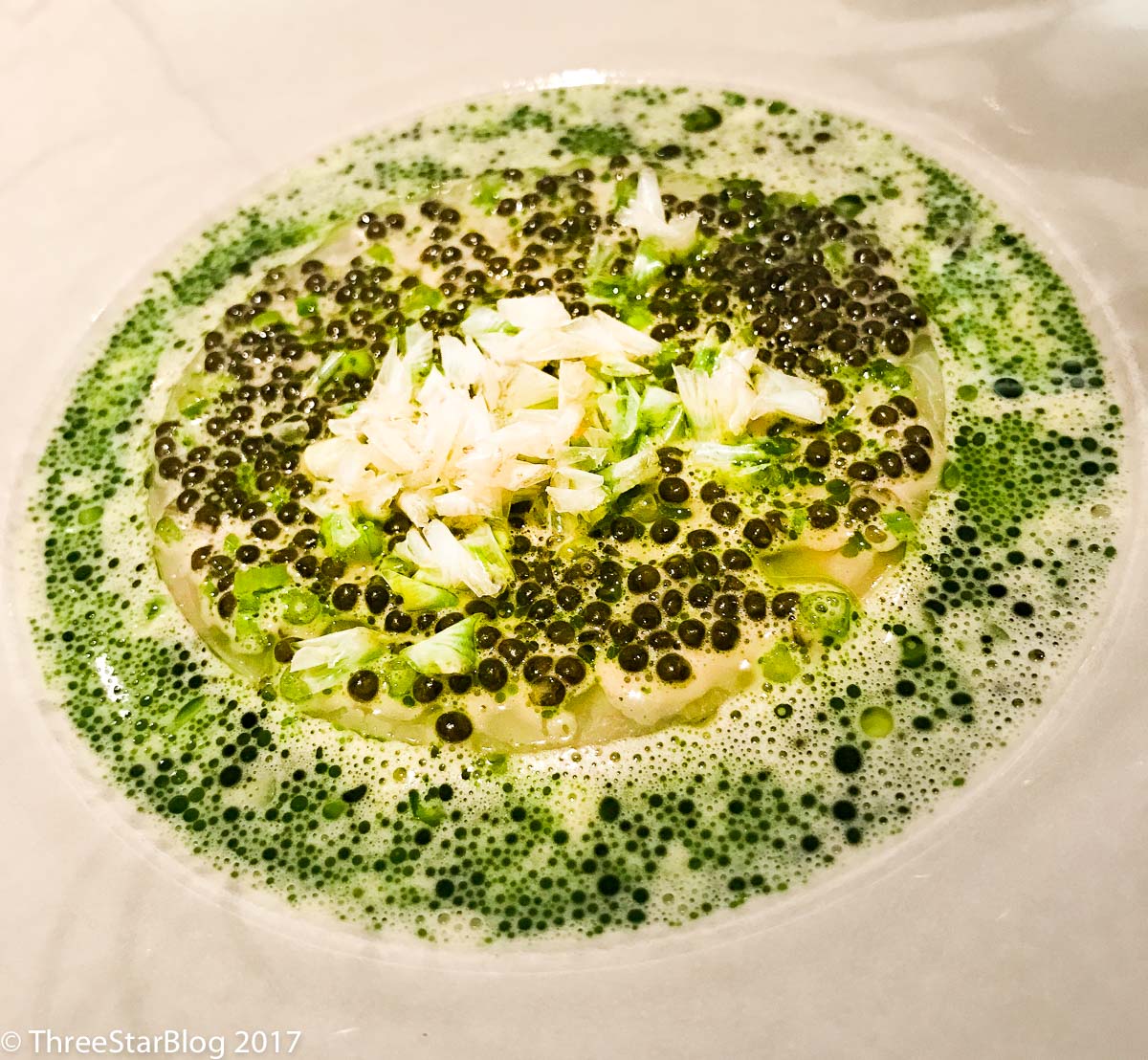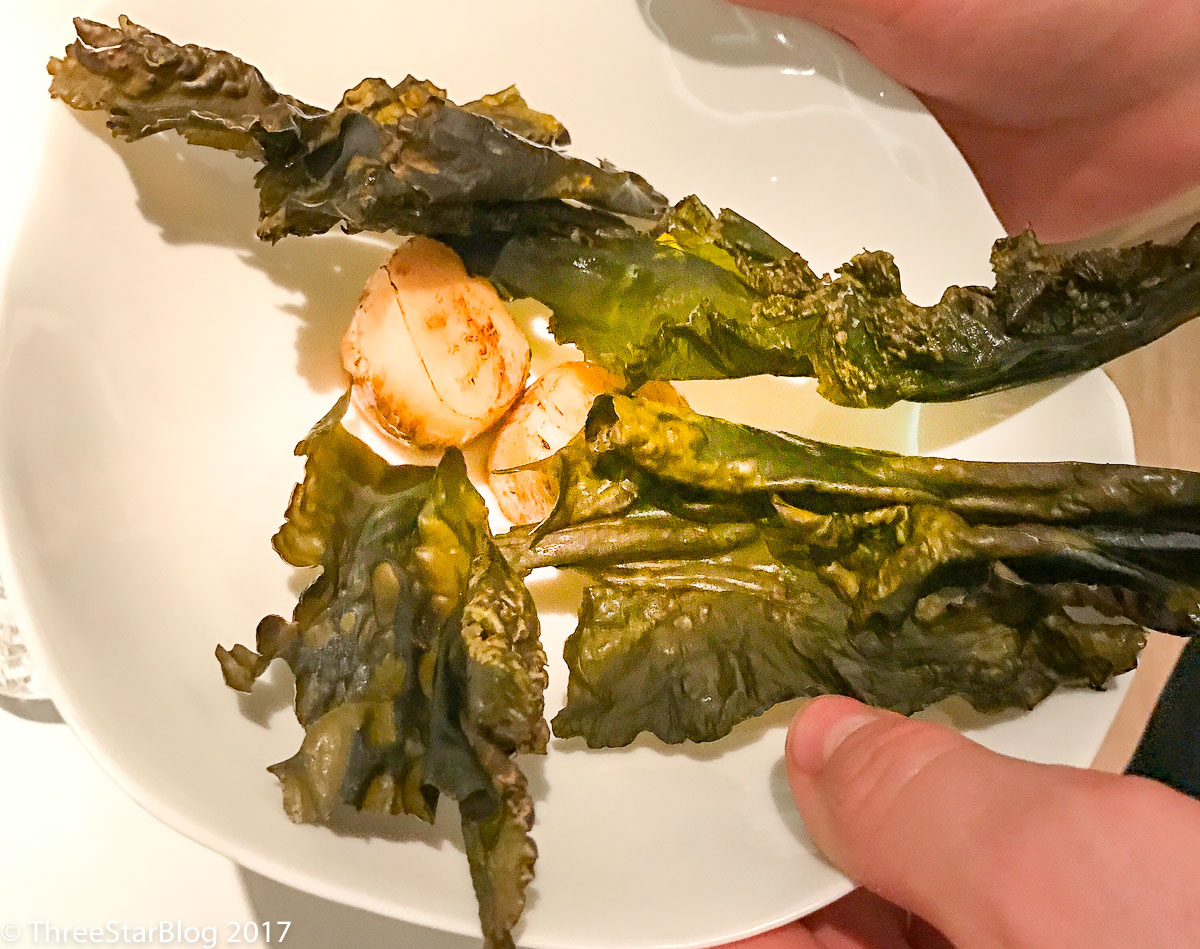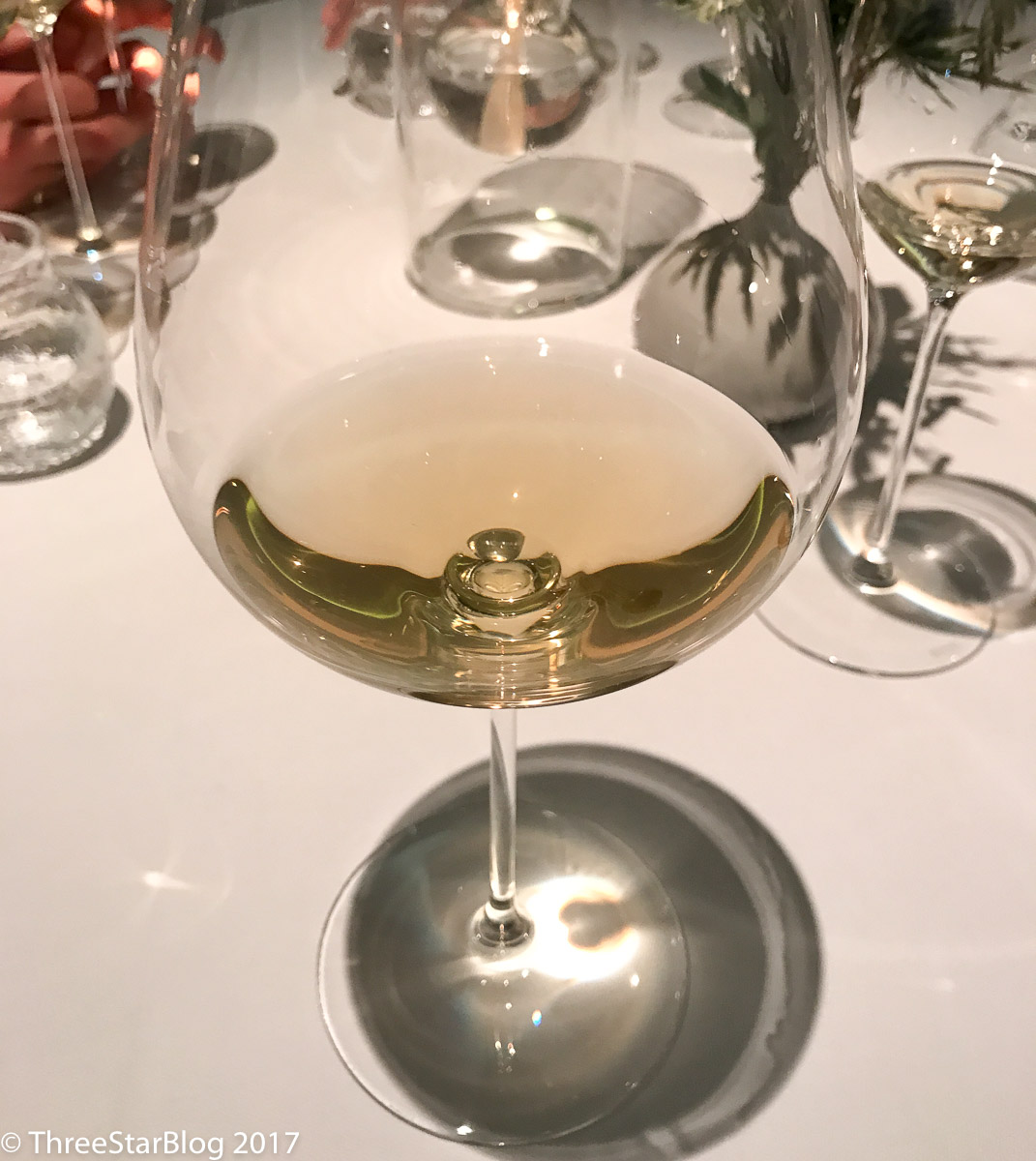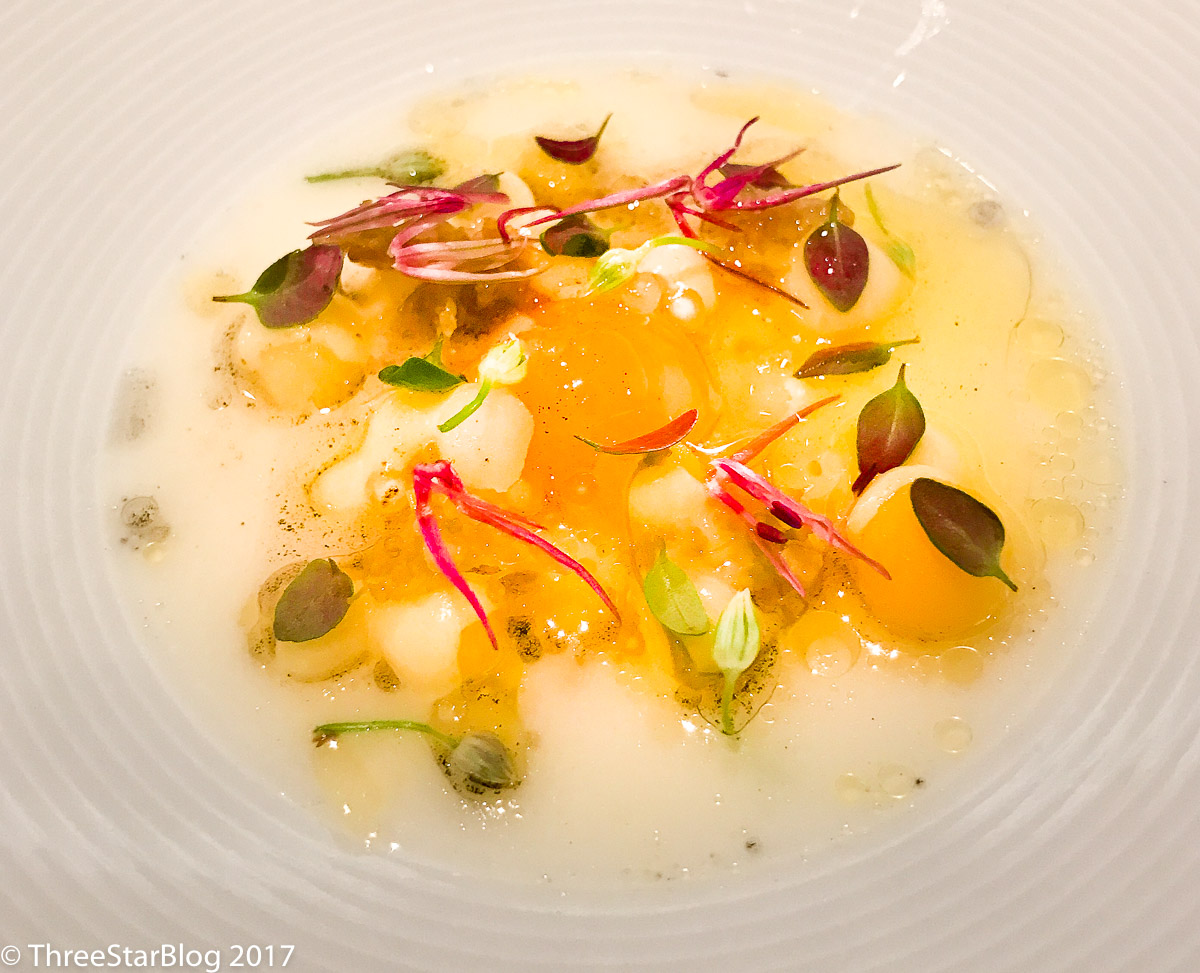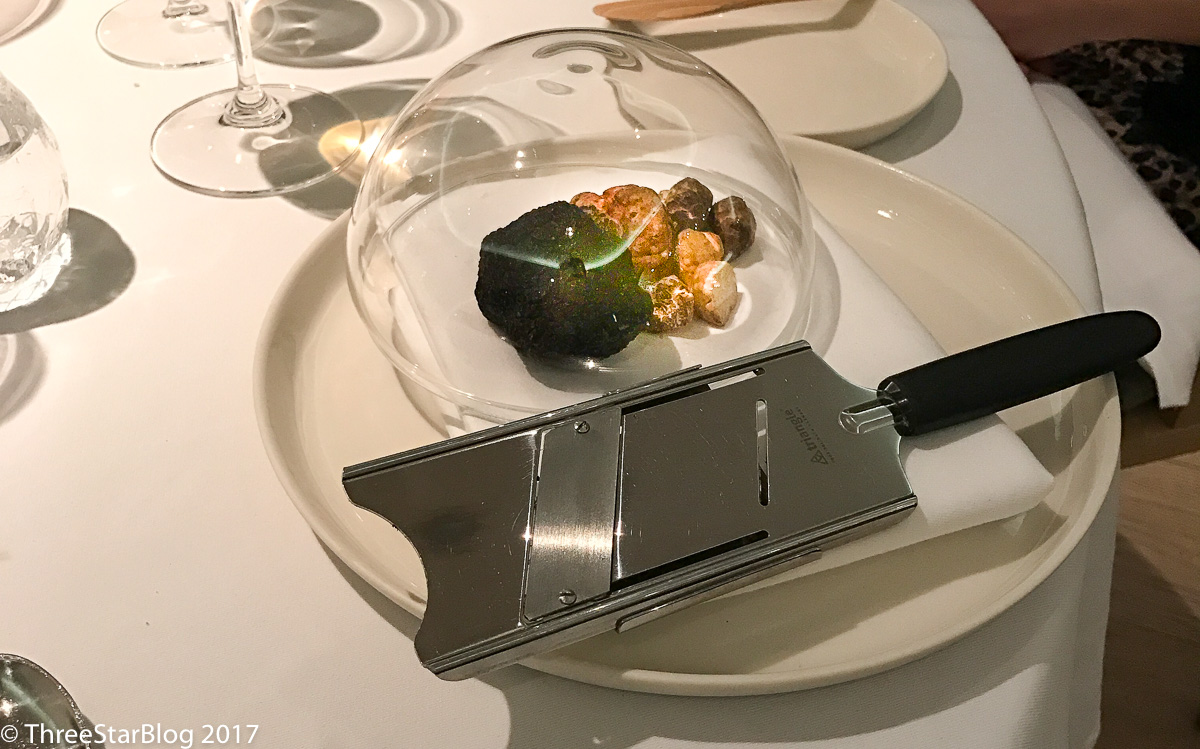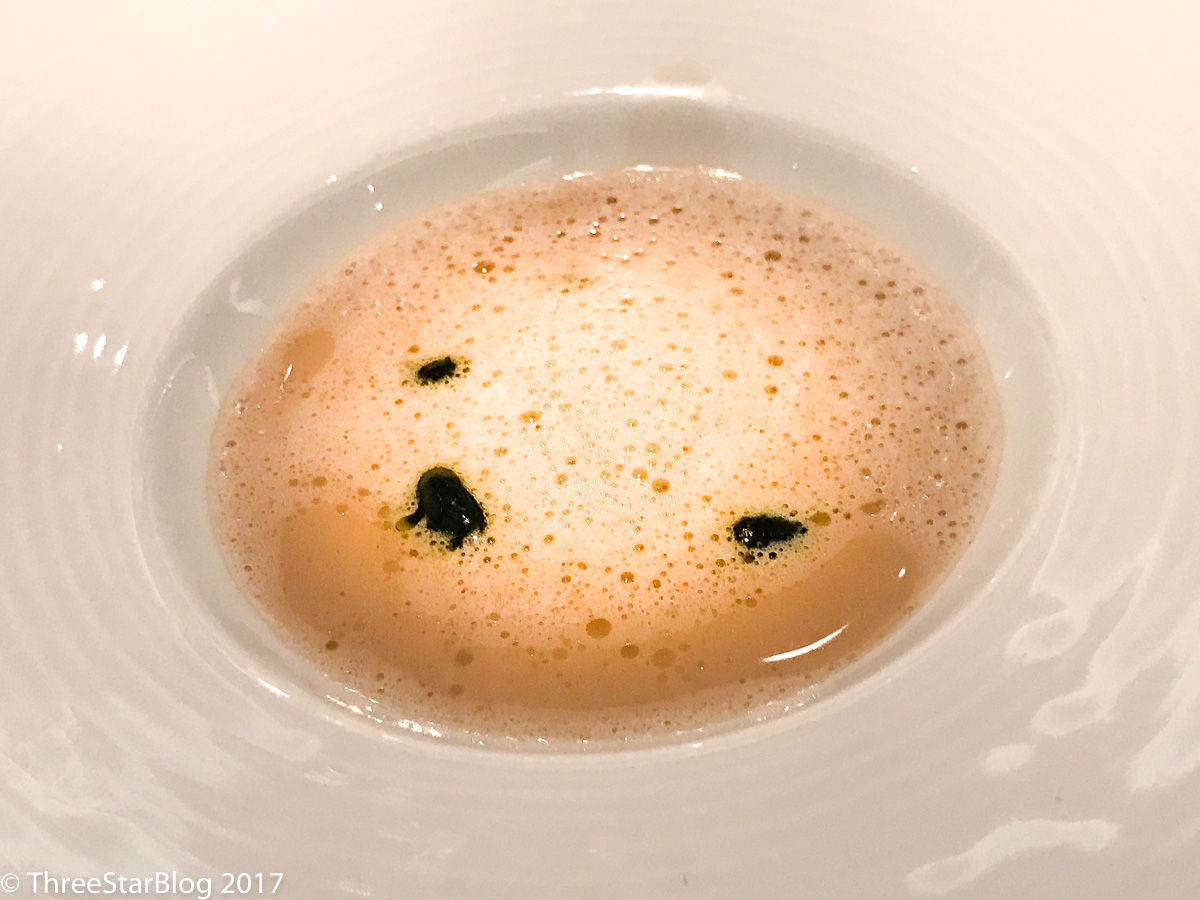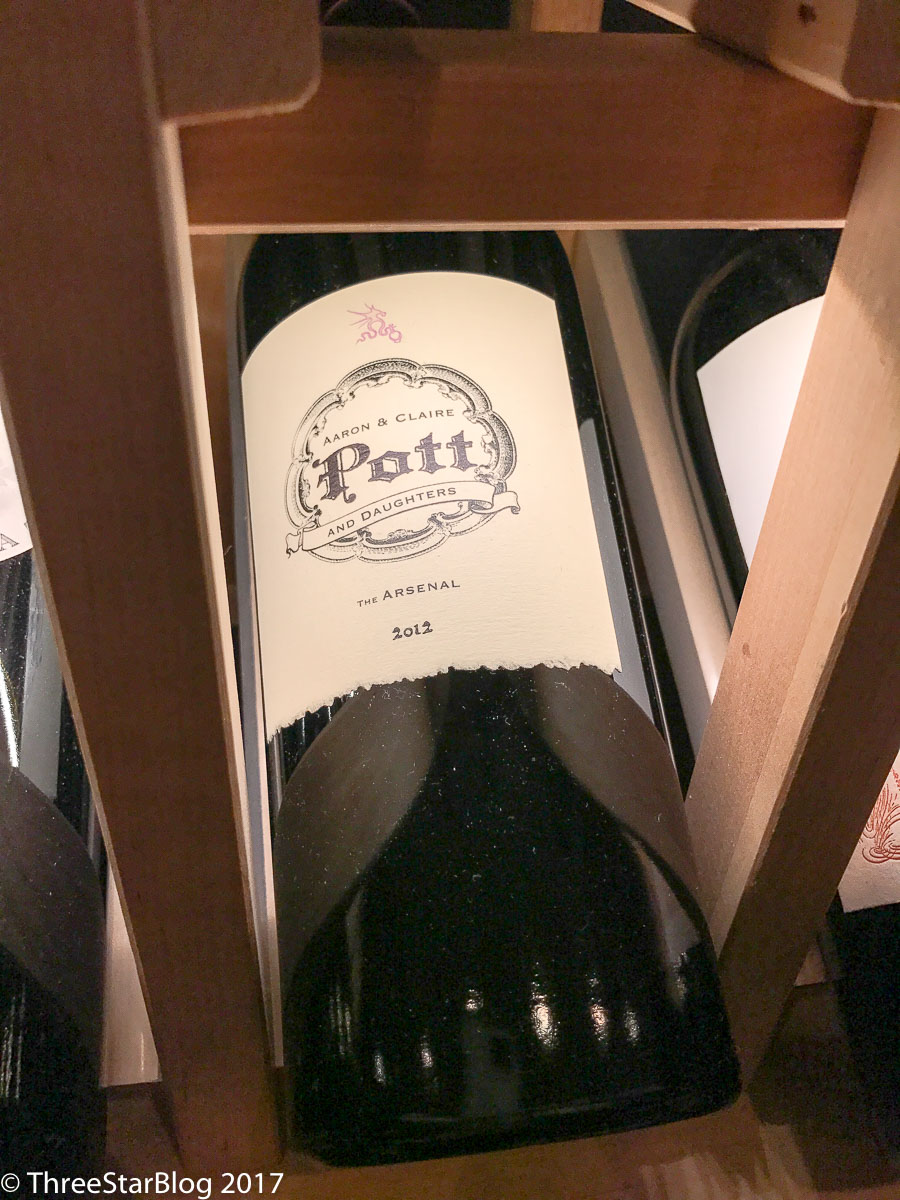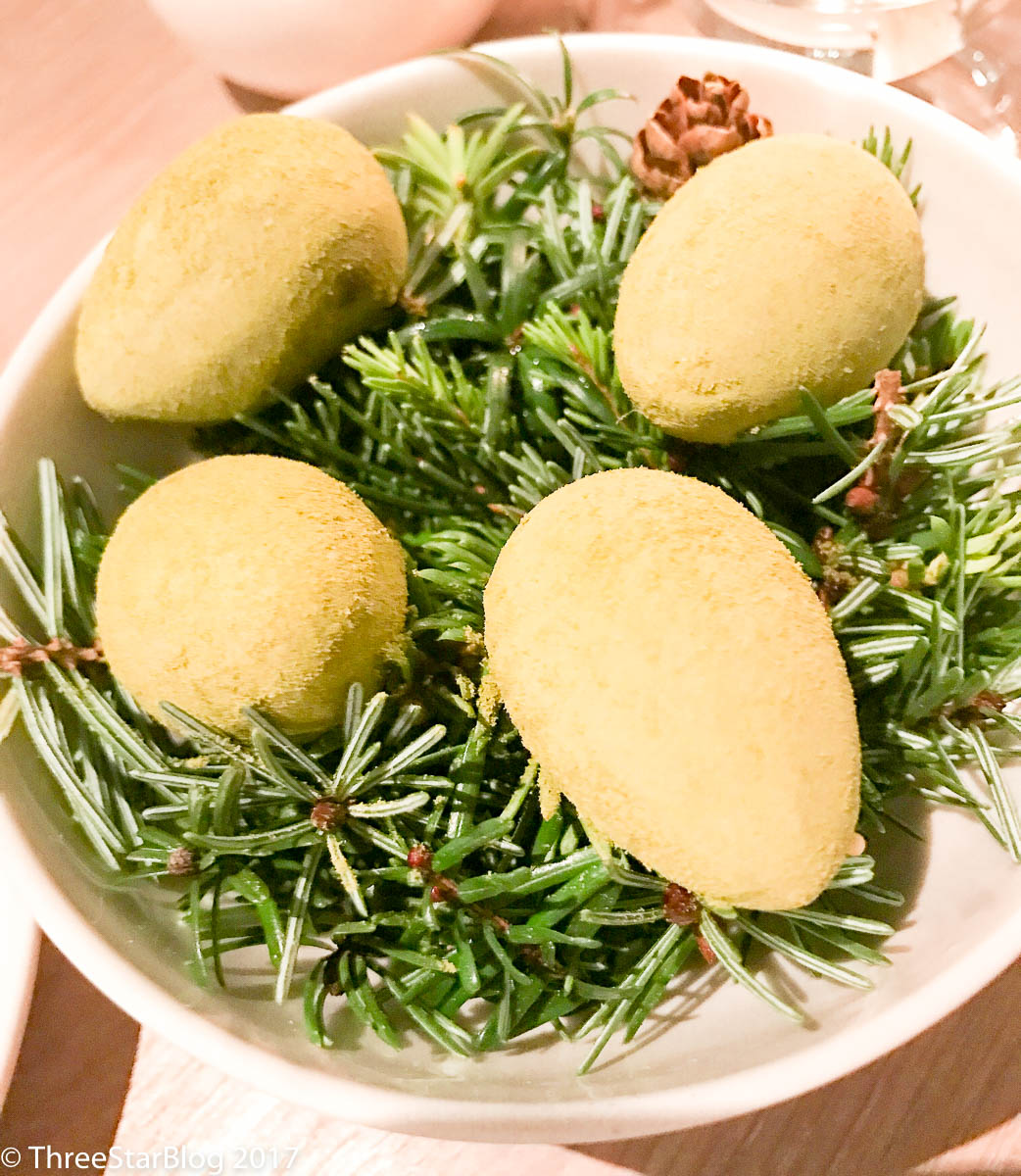Located next to Copenhagen’s Østerbro Soccer Stadium, this uniquely modern and svelte restaurant is Denmark’s only three-star. Led by Rasmus Kofoed, a gold-medal winner in the 2011 Bocuse D’Or, the restaurant won its first Michelin Star in 2012, the second in 2013, and the third in 2016. It has held them since.
This is a place that really nails the details. They offered an extremely eclectic wine pairing that was (almost) completely on-point, and every dish sang out with focus and deliberate attention - from the Georg Jensen cutlery to the playful but reserved razor clams dish.
A small restaurant with only 36 covers in an evening, I found every single person I interacted with warm, engaged, and excited.
COPENHAGEN, DENMARK, MARCH 2017
SERVICE: 9.0/10
FOOD: 8.5/10
PRICE PAID: $510PP (INCL. WATER, WINE PAIRING, TAX, TIP- PRE-CHALLENGE)
VALUE/MONEY: 6.5/10
FINAL RATING: 8.5/10
The entryway is nothing but smooth, pristine surfaces, angular furniture, and clear, beautifully polished glass. No greater showcase of Scandinavian taste and style exists.
After getting seated, a small aperitif cart is wheeled our way and we are offered three selections - 2008 Perrier Jouet Belle Epoque, 2008 Larmandier-Bernier Tere de Vertus, and finally a small producer named Dufour’s blanc de noirs Champagne. Titled Le Corroy, this bottle originates from the Côte des Bars sub-region near the village of Landreville, and is a decidedly modern take on the classic Champagne. Profoundly zesty and mineral-driven, with effusive bubbles and a lovely core of fruit. A+ for an off-the-beaten-path wine selection.
Like a warm handshake, the opening dish sets the tone for the evening and conveys clues about the direction the chef wants to take you. This dish, lobster served like bouillabaisse with fermented carrots (that’s where the color comes from) and sea buckthorn in a delightfully warm broth pairs perfectly with our champagne. The relatively simple flavors of rich lobster and lean carrot meld almost perfectly. 9/10.
Next, some Jerusalem artichoke leaves with hazelnut oil and rye vinegar. Sweet, sugary, with the overall effect of a seaweed candy. A mayonnaise at the base is a little heavy but warm and rich. 8/10.
Another broth; this time, tomato water, ham fat, and “aromatic herbs,” which appear in a beautifully (almost cinematically) constructed spoon to the side of the broth. The herbs are exceptionally fresh, and the broth exudes strong flavors of ham; the consistency is a thick and just a little too oily. The herbs are what really float this dish. Delicate and extremely flavorful. 8/10.
Not only does this gorgeous dish photograph like rich black moon rocks, but it presents an exceptional flavor of cream of potato soup when served on the spoonfuls of sheep’s milk butter. The potato is firm and well cooked; this is the second presentation in a row that uses gorgeously juxtaposed spoons. 10/10.
Chef Rasmus Kofoed wandered over to our table at this point in the meal and very casually shared a memory of carrying razor clams from the waterside back home in his pocket as a child, and his attempt to recreate the dish from that recollection. The "Shell" is actually edible and gives way gently, revealing lemon and sour cream flavors, perhaps alluding to the delicateness of those childhood memories. A wheat purée shell painted with algae and charcoal to mimic the natural colors of the clams; brilliant execution of this somewhat cerebral dish. 10/10.
This is served alongside a glass of Pear cider produced by Eric Bordelet called Sydre Argelette; a brilliantly effervescent pear beer with low alcohol and refreshingly zesty acidity to pair with the simulated seafood. A.
Generously, we are offered a bonus beet salad course. Thinly sliced, with broth poured over emphasizing the brilliant green beet flavors; bright basil oil leaps out of the background in the photo as well as on the palate. 8/10.
Two separate plates arrive with the leftmost occupied by frozen dill. On the right, some “Dill Stones” that are extremely herbaceous and give the overall effect of a wheatgrass jello shot. When combined, there is a trace of horseradish on the finish, which gives an excellent spicy kick. A creatively presented dish; 9/10, I like the self-assembly part especially.
The next course was a multiple-layers-added-at-the-table experience of Salted Hake with parsley stems and Finnish caviar in buttermilk. Hake scales were added at the very last step. The initial texture looks like brightly-colored stone, and indeed we are told that the message of this dish is to "keep a piece of the marble," which feels like it doesn’t translate precisely. Lots of green flavors and a touch too salty but otherwise perfect. 9/10.
Next, Norwegian scallops with crispy scallop roe cakes. Scallop, Filippa Apple, Scallop Roe, & Browned Butter. The Glazed scallop with Phillipa apple reduction is sweet, almost raw. The scallop is super fresh so a light preparation works well. 8/10.
As an upgrade to the standard offering of Aligoté, we are offered this fascinating wine pairing called Volapyk. The product of a Danish winemaker and wine importer Kenneth Bellaire, in 2015 he bought grapes from various biodynamic winemakers in Burgundy, and made wine in Frédéric Cossard’s winery in Saint Romain. According to the sommelier, Kenneth defines his style as "hard core" natural, without additives (and also without added sulphites, a tricky game to play) and with minimal intervention. The effect was crisp, fresh, but just a touch two-dimensional on the palate. It emphasized the dish nicely without getting in the way, but didn’t add a great deal to the conversation. B-.
An interlude course of “Crispy Grains” with old-grain bread as well as gluten-free options with seeds. The small pine sticks above are Parmesan-flavored. Interesting but for what was a very long and filling meal perhaps unnecessary. 8/10.
Pickled veggies are served next, with the yolk of a quail egg to add a dash of richness. The vegetables themselves are crisp and shockingly crunchy for Scandanavia in March. Great texture contrasts. 8/10.
As a wine pairing, a 2015 Spätlese Riesling from Mosel by the producer Zilliken. B.
A gorgeous plating of Turbot, Celeriac, and pickled and salted pine. The turbot is served a touch dry, but presented beautifully (see video below).
For a pairing, we are offered a 2009 vintage Nyetimber Blanc de Blancs, one of the vanguard of the British sparkling wine movement. Vigorous bubbles and laserlike focus, but perhaps a touch too lean for the relatively rich dish. A-.
Next we are served a dish of walnuts with black truffle and cep mushroom soup. The black walnuts are especially crunchy and add texture. 9/10.
A truly fascinating wine pairing came next: 1995 “Cuvée W” Chardonnay from Kalin Cellars in Livermore, California, a weird little AVA formed in 1981 and not necessarily known for their age-worthy wines.
This chardonnay showed a shockingly rich blend of toast, honey, mead, and spices that one might expect from a well-aged Burgundy. For an added touch, they use hot tongs to break off the cork at the neck (the bottles might not have had the highest-quality closures). A+.
For the final main course: Grilled Lamb, Ramson, and Smoked Lumpfish Cream.
The lamb is perfectly fresh but a touch dry; the roe adds a good salt base to the dish, nicely balanced overall. 9/10.
The wine pairing is another interesting Californian choice: 2011 Dunn Vineyards from Napa; a famously poor year in Napa. Luckily, this bottle turned out far better than its reputation would preview. Dark and rich fruit; tons of black cherry and black currant, but a good balance of vanilla, toast, and nutmeg. A.
As a small break before dessert, we are led on a somewhat wandering tour behind-the-scenes to the wine cellar, the kitchen, and even to a hydroponic garden growing in the back. The wine cellar was a truly global affair with a surprisingly large selection of great Californian producers.
This next dish, a frozen bite of beetroot with black currant, yogurt, and tagetes (Marigolds) is a lovely combination of sweet and palate-cleanser, 9/10. It is paired with an absolutely lovely sugary Beerenauselese from Keller that has a lot of white and yellow stone fruit to balance the dish. A.
The sweetness high point of the meal; Beeswax ice cream topped with pollen, paired with a spoonful of black honey to the right. 9/10.
The final dessert on the menu was an abstract-art dish of caramel, roasted grains, chamomile, and pear. This is some lovely handiwork by the pastry chef, with a long string of solidified sugar drawing the dish together like a needle pulling thread. 8/10.
“And finally, death.” I detect the vaguest note of symbolism with this dish, but it’s extremely hard to place… Luckily, the peanut butter ice cream on the inside was delicious.
Last but not least, a series of small desserts, petit-fours, marshmallows, and candies to see us on our way. 8/10.





